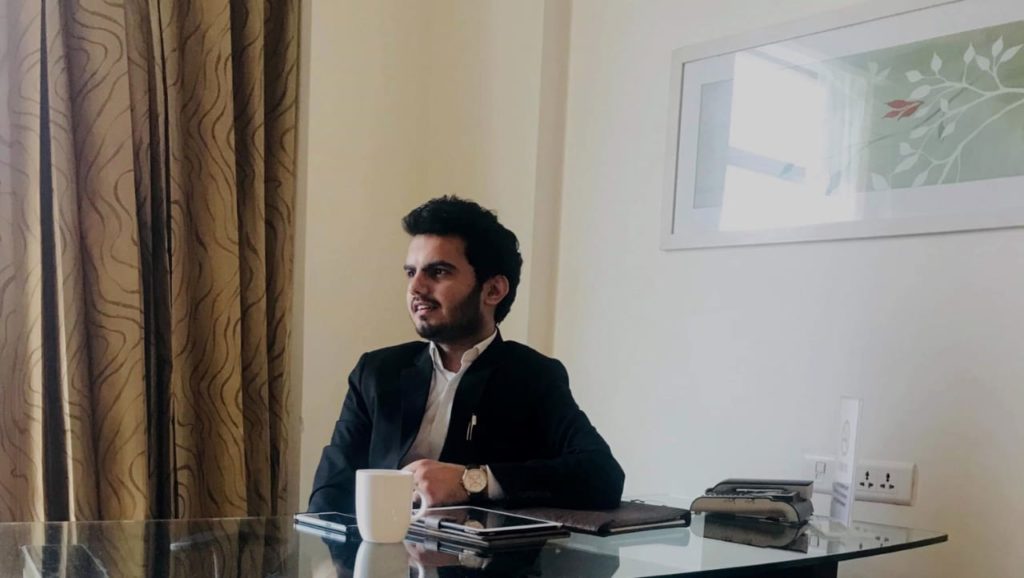Mr. Jayant Mudgal is a practising advocate at Delhi High Court. The driven and proactive litigator has his lot of interactions with his seniors and luminaries from legal and political fields,which, he believes, has added to his practical knowledge and inspires him to give the best to his profession.
Q. Has law, according to you, actually become a more prominent career option now as compared to thirty years ago?
A. Definitely, law is one of the main career choices of youth for almost a decade now. Earlier preferred career choices were mostly that of a doctor, engineer or Chartered Accountant and law was not really a choice. Increase in population has definitely created need for more lawyers which was not the same earlier. There were less of difference of opinion and hence less of litigation. A need for lawyers is generated in the past of couple of decades may be that is the reason we have seen such a rise in number of law graduates today.Back then the pitiable sight of hundreds of lawyers sitting outside the Court persisted in the minds of people. Families which had lawyers took legal field as a family profession, where studying law passed on from generation to generation like an ancestral property.
But with the substantial changes our legal field had undergone in these years mindset of our society has changed. Interest towards law has increased with increasing awareness regarding the issues which concern the society. Whether it be about the reputation, pay-scale or future prospects, law is undoubtedly preferred over other career options now.
Now people seem to be aware about the importance of legal field and self-realisation of their rights. Now anyone having the traits and passion for this field can opt the same with the desire to achieve the goals they had set for.
Q. You had mentioned about taking up pro bono cases for the poor. Please throw some light on this.
A. I feel one learns a lot from a pro bono case.For a case where I get paid, I will have an interest limited to myself more than my client but in a pro bono case, the only interest lies in seeking for justice. They have this sort of positive energy. I earn blessings and knowledge each time I win a pro bono case, which is mesmerizing and keeps me going.
Q. You have been interacting with and meeting notable Parliamentarians and senior advocates of the Supreme Court and Delhi High Court. What has this taught you as a lawyer?
A. What I have learnt so far is with power comes responsibility, you are responsible for someone else’s life, profits, interests and benefits. Defending an upright and innocent person makes you noble.
Our legal system is like a phlegmatic British noble wherein the fact that a criminal or accused has committed a wrong is relevant, rest everything is trivial unless proved through evidences. One of the cases which I recently encountered was that of a man who was accused of having stolen a purse which only had Rs. 1000 in it. He was behind the bars with a hearing due for an year. The night he stole that purse,he had a hungry stomach, an ailing mother and a drunk father who was nowhere to be found. This was the lesson of his life.
Q. What do you think are the advantages of entering into practice rather than the corporate sector?
A. Litigation has its own perks over corporate sector. I believe getting a fixed salary as a corporate lawyer can provide one statistical pleasure. Real contentment lies in meeting new people, having more clients, fighting and researching for them, arguing with fellow lawyers and securing justice for someone.
Litigation is an adventure in itself where at one instance, one does not earn for months whereas at the other instance one can earn millions in a week.
I can still do corporate transactions while being a litigating lawyer but that is not always the case with many corporate lawyers.
Q. Do you believe that law lies in public conscience, in spite of the hostility that resides within humans today, sparking off crimes?
A. In a democracy like India, law is for everyone and treats everyone equally without discrimination-principle which is enshrined in the mighty constitution as well. Amendments proposed by our lawmakers are to support changing mindsets of the society mindsets so they are completely a public orientation thing.
As an example, there were too many dowry cases coming up a few years ago and surprisingly, people were getting married with fabricated hopes of congregating valuables through dowry. Section 498A was a result. After it became a prominent law, there came a time when cases of it being misused were also reported. Relatively there came a time when people got married and divorced mutually thereafter. There are hardly any monetary transactions involved. I think that depicts the evolution of law as per public conscience.
The latest example which can be quoted here is of the very recent Motor Vehicles Amendment Bill,2019. The increase in degree of compensation and punishment in cases of negligence and drinking and driving was inexorable. Penalty hike from Rs.200 to Rs.1000 is enough to provoke a thought to wear a seat belt for the thick-skinned. A fine of Rs.10000 is a good pinch in the pocket to not drive while you are drunk. Cheque bounce laws is another example. So yes, public conscience is definitely prevailing, inspite of the hositility that resides within humans today.

